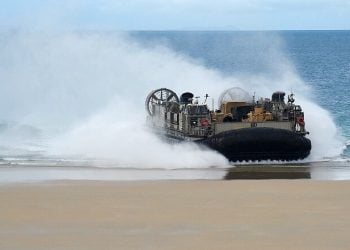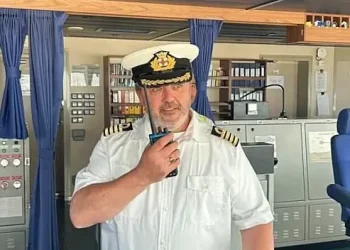The UK government has announced significant changes to maritime law, aimed at reflecting the ever-evolving needs of seafarers.
These updates, set to come into force in 2025, include mandatory internet access for seafarers while at sea and strengthened requirements for a balanced, nutritious, and varied diet. These changes underscore the government’s commitment to enhancing seafarer welfare and safety.
Enhanced Internet Access for Seafarers
Connecting Seafarers Globally
The new regulations mandate internet access for seafarers, a move hailed as a basic human right by the
International Transport Workers’ Federation (ITF). Mark Dickinson, Vice Chair of the ITF Seafarers’ Section, emphasized,
“Being able to keep in touch with family and friends isn’t just a nice-to-have, it’s a basic human right.”
This update to the Maritime Labour Convention 2006 ensures that seafarers can stay connected with loved ones, mitigating the isolation often associated with long periods at sea.
Improved Dietary Standards
Nourishing Those at Sea
The new maritime laws also focus on improving the dietary standards for seafarers. Ensuring a balanced, nutritious, and varied diet is crucial for maintaining the health and wellbeing of those working in the maritime sector.
This change aligns with broader efforts to enhance the living conditions and welfare of seafarers, reflecting the government’s dedication to their health and safety.
Comprehensive Regulatory Framework
New Regulations for Commercial Vessels
In addition to these changes, the UK is introducing the Merchant Shipping (Vessels in Commercial Use for Sport or Pleasure) Regulations 2025. These regulations will provide a more coherent legal framework for operators of large or small vessels operating commercially for sport or pleasure.
They will give effect to the REG Yacht Code for large vessels and the new Sport or Pleasure Vessel Code for smaller vessels, addressing key safety standards and the use of alternative fuel sources.
Updates at a Glance
- Mandatory Internet Access: Ensuring seafarers can stay connected with family and friends while at sea.
- Improved Dietary Standards: Enhancing the nutritional quality of meals provided to seafarers.
- New Vessel Codes: Implementing the REG Yacht Code and the Sport or Pleasure Vessel Code to improve safety and environmental standards.
- Decarbonisation Efforts: Encouraging the use of alternative fuel sources and propulsion types to decarbonise the shipping industry.
Regulatory Changes in 2025
Regulation |
Effective Date |
Description |
|---|---|---|
| Internet Access | 2025 | Mandatory internet access for seafarers while at sea |
| Dietary Standards | 2025 | Strengthened requirements for a balanced, nutritious, and varied diet |
| Vessel Codes | 2025 | Implementation of REG Yacht Code and Sport or Pleasure Vessel Code |
| Decarbonisation | 2025 | Encouragement of alternative fuel sources and propulsion types |
| Mediterranean Sea ECA | 1 May 2025 | Mandatory use of fuel oil with 0.10% sulphur content or EGCS in the Mediterranean Sea ECA |
Ensuring Fair Pay and Safe Working Conditions
The UK government is also continuing its efforts to protect seafarers’ wages and working conditions. The Seafarers’ Wages Act ensures seafarers receive at least National Minimum Wage, preventing exploitation and enhancing welfare.
In Summary: A Brighter Future for Seafarers
The UK’s maritime law changes enhance seafarer welfare and safety with internet access and improved dietary standards.
The UK sets a high standard for seafarer care with mandatory internet, improved diets and comprehensive regulations. Maritime law changes foster a safer, more sustainable and connected environment for seafarers.
Sources: THX News & Maritime and Coastguard Agency.









